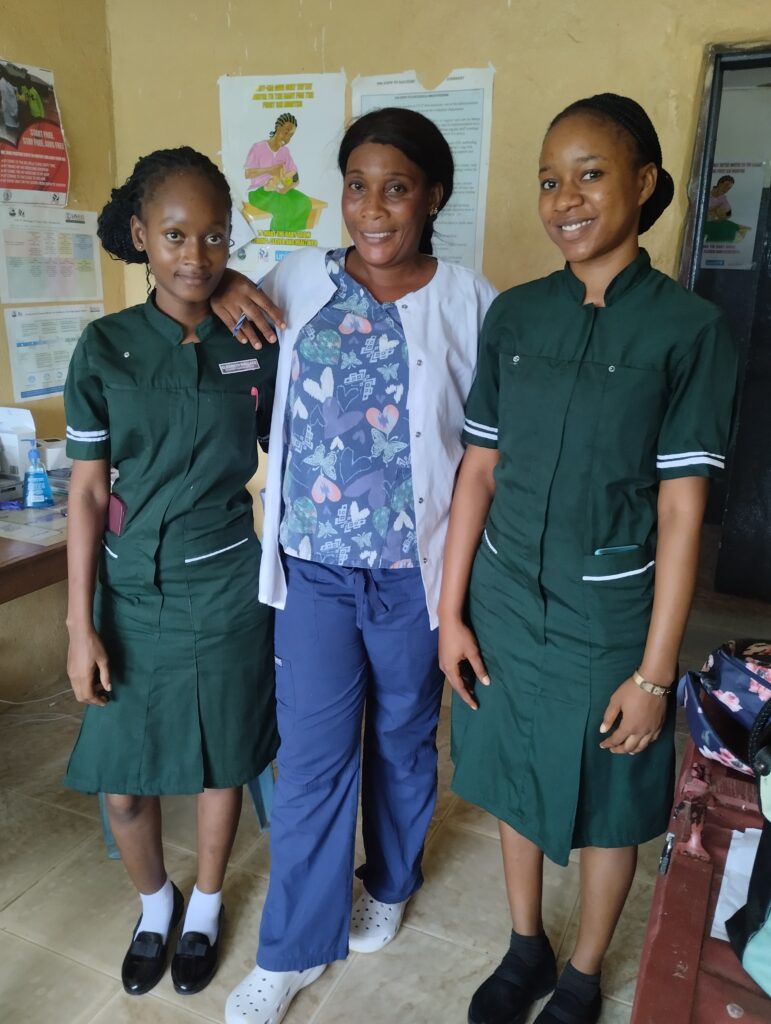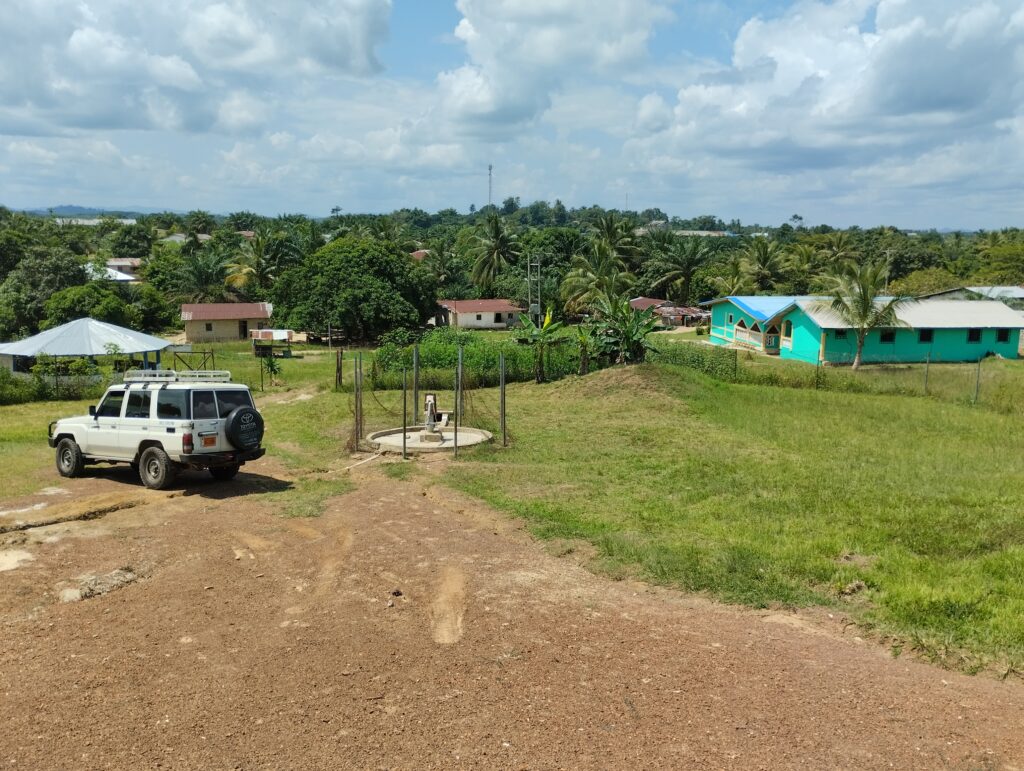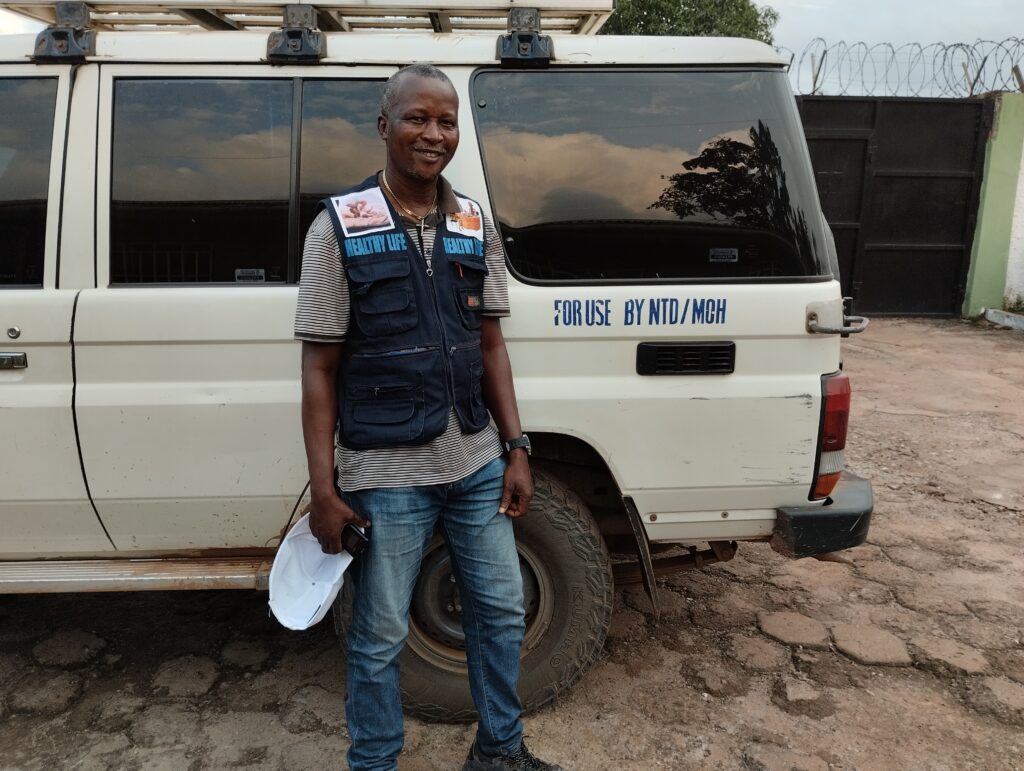Angeline and Augustine reinforce the importance of mental health training and engagement
“Whatever case comes to the clinic, I’m the person who deals with it first because I've trained in this and I get the treatment started.” Angeline Ki Lobbo


When a person comes to the Kakata clinic to be treated for a health problem, one thing at least is certain: they will be treated by women. Why? This clinic in Margibi County, western Liberia, only employs women. When we asked Angeline Ki Lobbo, head of the Neglected Tropical Diseases (NTD) programme at this flagship laboratory in Margibi, she replied matter-of-factly: “There are almost no men here, I assume it’s because most women in Liberia want to study medicine.”
The same is true here for the entire process of NTD screening, testing and treatment. Angeline explains that they have a nurse in the community who liaises with the clinic. When the nurse comes across a case in the course of her work, she passes it on to Angeline: “Whatever case comes to the clinic, I’m the person who deals with it first because I’ve trained in this and I get the treatment started.”
This reference to training is important and is a key factor in identifying NTDs; without it, you can’t even start treating them: “In the past, when I saw sores, I couldn’t tell them apart. In fact, I wasn’t even aware of a disease called Buruli ulcer. At least now when I see a sore, I can treat it and know if it’s Buruli ulcer or yaws, or if the person has leprosy. Now I can tell the difference. Training has helped us a lot.”

“We are more aware that a body recovers better if it has a strong and healthy mind.”
This training does not just focus on detecting NTDs, but is intended to cover the long process that these diseases entail. And that also includes mental health. The physical effects of NTDs are very visible, but there are also less visible consequences, such as stigma. That’s why health workers need to have the necessary knowledge to address it. At the centre they acquire awareness of this: “Thanks to our training, we now know what stigmatisation is. Not only that, but we also gain an appreciation of mental health. We’re more aware that a body recovers better if it has a healthy and strong mind. It’s very important to continue strengthening this side of things.”
In addition to training, the project supported by the Anesvad Foundation in Liberia – hand in hand with the Ministry of Health, the American Leprosy Mission (ALM) and the organisation Effect Hope – also aims to address the lack of materials and medicines needed to treat NTDs. Angeline gives us an example: “Sometimes people come in with a sore and you want to treat them, but you can’t and you know that it can infect you too. It’s scary, so you take many precautions. We don’t have a lot of materials to work with.”

“For example, when they need medicines, they send me a list of their patients and their supplies.”
This is something that Augustine B. Flomo, the NTD focal point in the Margibi district, agrees with. In charge of monitoring and supervising the health centres in the county, he makes sure they are well stocked: “For example, when they need medicines, they send me a list of their patients and their supplies.”
Augustine believes that the health system is improving by the day. He says that since she started working on this project, medicines and supplies arrive twice as fast now. However, Augustine reminds us that they still need more equipment for those still affected by these diseases: “We need to get organisations more involved by collaborating and providing better and safer conditions for patients. We support all the organisations involved in this and, in turn, they support us. This is especially true when it comes to the laboratory, when it comes to equipment and medicines.”
Despite the challenges ahead, Augustine is enthusiastic about the project: “I think that what the Anesvad Foundation, ALM and Effect Hope are doing with the national programme is not only going to be very helpful for the county but for the nation as well. It will help us further improve the programme and provide us with valuable information for it. It will help us take better care of our patients.”

